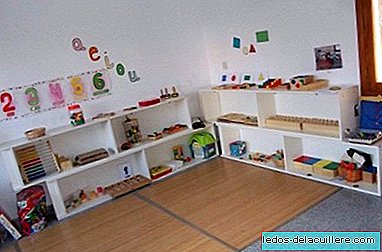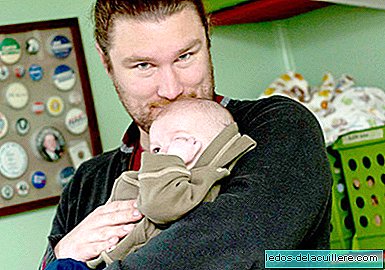
We finish today our interview with teacher Patricia Vidal Calduch, creator of the active school Espacio para Crecer that will tell us today about the adaptation of the ideal school to the requirements and needs of the children of the SXXI.
What do new technologies offer to learning?
New technologies now provide us with an opportunity to promote global scale changes in learning and education.
Digital technologies can allow children to become active and independent learners, taking charge of their own learning through direct exploration, expression and experience. Global connectivity can make new knowledge building communities a reality, in which children from all over the world (and adults) collaborate on projects and learn from each other. The passion for learning characteristic of children can continue thanks to the individualized form, they can find everything that interests them and that can give them the inner happiness that they need.
Should we design school formulas much more flexible?
Children need to move, play freely, explore in safe and creative spaces with companions who respect and trust them. Children study and learn alone, but if they have a quiet environment, full of stimuli: spaces to play, experiment, read, make mistakes, talk, communicate their concerns, express their feelings, learn through their own experiences. Children spend a lot of sitting hours sitting in which they do nothing but process words that are extracted from books, and work. When a child really learns something it is being happy, getting excited, being motivated and doing things. Children learn when they have the freedom to devote themselves to their interests, and not sitting so many hours at their desks and having them write things that do not interest them, when they can ask questions that arise from the interior, when they can be with people of all ages and they also learn alone.
Are the desks and chips over?
I think it is unnatural for schools to subject children from a very early age to being sitting in a chair for many hours and with guided activities. They are not biologically prepared to spend several hours sitting learning things repetitively. Making absurd and boring tokens. Children need to play, run, explore, be in touch with nature (land, water ...), get stained, investigate. Also, through play, children practice the skills necessary for the future, they know the world, they express their emotions, they interact with others, they develop psychomotor skills, they increase their creativity.
Is Space to Grow a place where this happens that you explain to us?
Yes. I live it every day in our space, like movement and play, and those real and direct experiences make children constantly learn. There are countless schools that pretend their success in haste. They are in a hurry to precipitate maturity and learning. What is achieved is that the child memorize more and better, but does not understand what he memorizes and that it is in so many cases useless learning.
Schools without punishment and without notes?
No punishments or notes are necessary for children to learn.
What is really needed is an accompaniment and respect without judgments, prizes, or punishments to favor security. the autonomy and creativity of children.
From an early age, children are rewarded with prizes, often artificial, to motivate them to continue acting in a certain way. Children are not given the opportunity to discover what they like, which drives their enthusiasm to commit themselves completely.
Children should be allowed to make mistakes, as part of the process and not penalize the error. There is no correct and concrete way of doing things, it can be reached by different paths.
Another aspect that I think is not necessary are exams and notes, as they are proposed. Education teaches teenagers to pass exams, not to think for themselves. In an exam, understanding is not measured, the ability to repeat is measured. Exams do not contribute anything to children. The child feels fear, anxiety, boredom, apathy.
They have nothing to do with their needs, they turn them into statistics, they label them, and they stress them. What we really need is a holistic (integral) education. Keep in mind that the person is not just reason.
It is necessary to create environments that support children, that have the freedom to express themselves and the responsibility of their own learning, without threats, where interest, and not the obligation incites them to learn and attend, where they have the responsibility of their own learning and freedom that arises naturally with that responsibility.
But I think it is convenient for the system that one is not in contact with oneself, and that one thinks for oneself. He is very afraid of people having a voice and conscience.
Does the school respect the diversity of learning styles?
The traditional school at all. Schools teach children standardized procedures. Everyone has to do the same, at the same time and everyone should get the same result. It is impossible for rhythms and diversity of learning styles to be respected when there are 25 students in charge of an adult in the classroom. At school, neither multiple intelligences nor different learning styles are taken into account.
How should the system improve to care for children with ADHD?
There should be a radical change. The school is not adapted to most children's needs and rhythms.
And as they start schooling every time, they are diagnosed at very early ages. The school should understand the diversity of students in their ability to learn. He would have to be able to meet his students in his individuality. It should value and enhance the less cognitive aspects of learning, sports, creativity, art, the person. Give attention not only focused on the academic level but also on the emotional level of children. These children who are diagnosed because they do not fit into the system, they find it difficult to follow classes because they get bored and do not pay attention, if they can be attentive and focused when they play sports, sing, dance, or engage in something that interests them. So if they focus, they get the best of themselves and are motivated. How should the system be improved to serve children with high capacities? The system is unable to meet the needs of children with High Capabilities and help them develop their potential. They need adequate attention to their learning rhythms, and this does not mean taking them to a special classroom or sending them more homework, but putting everything they need to develop within their reach as their own body and mind asks. Can alternative methodologies be adapted to the traditional school? They can merge but I think there can be no adaptation in itself. A traditional school that imposes schedules and spaces can host alternative methodologies, but they will stay in simple activities or projects without becoming meaningful and relevant to the student. They cannot be integral alternative methodologies, as there are many factors that would limit it. The traditional school itself would have to become something that is not, starting physically and structurally, in order to adapt this type of methodologies. They can live together under one roof but they can never integrate and adapt to the same way of seeing learning. Another type of open and flexible school that grew on the foundations of the obsolete traditional, it could begin the path of experiential and experimental learning. Finished the interview with teacher Patricia Vidal about the ideal school and we will continue to deepen this and other aspects of the educational and school system in upcoming conversations with experts.Although there are more and more families, schools and educators wanting to change things from the heart, and committed to a respectful education, and that is the way to achieve a balanced personal development and a more conscious society in all areas.












